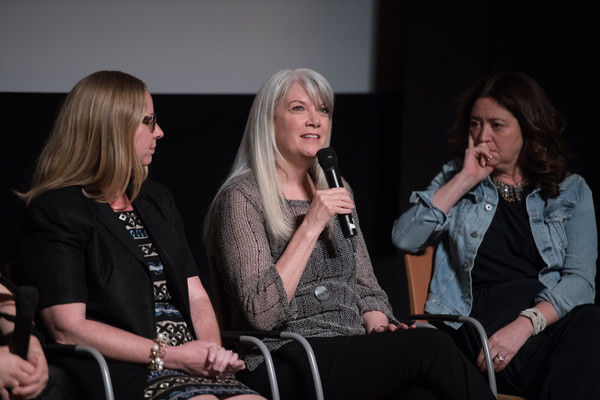Health
"A Dangerous Son": Why We Shared Our Story
A feature interview with director Liz Garbus, Edie Cooper, and Stacy Shapiro
Posted May 12, 2018
Interviews have been condensed and edited for clarity.

On Monday night, HBO released director Liz Garbus' documentary, A Dangerous Son. The 90-minute film features three mothers who struggle immensely to find proper help for their emotionally disturbed sons. Audience members who had never dealt with children facing severe mental illness described the piece as heartbreaking and difficult to watch. However, parents of mentally ill children displayed a very different reaction; they felt a sense of validation and hope. They believe that this film could serve as the first major step in changing the public's judgmental perception of children with mental illness and their families. Parents should be supported, rather than shamed, by their communities.
Director, Liz Garbus first became inspired to produce A Dangerous Son after reading Liza Long's controversial essay, "I am Adam Lanza's Mother." Long wrote the blog post two days after the Sandy Hook Elementary School shooting, in which 20-year-old Adam Lanza murdered 20 first-grade students, five faculty members, and his mother. Long's essay detail her family's endless struggle to find proper help for her son, Eric, who would later be diagnosed with Bipolar I disorder.
"This problem is too big for me to handle on my own. Sometimes there are no good options...I am sharing this story because I am Adam Lanza’s mother. I am Dylan Klebold’s and Eric Harris’s mother. I am James Holmes’s mother. I am Jared Loughner’s mother. I am Seung-Hui Cho’s mother. And these boys—and their mothers—need help. In the wake of another horrific national tragedy, it’s easy to talk about guns. But it’s time to talk about mental illness."
Garbus described feeling heartbroken after reading Long's blog post. "I knew there was another side to the story that needed to be shared. These mothers needed help and had nowhere to turn," she explained. Garbus believes that a A Dangerous Son will open up the door to a much-needed dialogue about the way we mistreat those with mental illness. Long term, she hopes the documentary will promote political changes that will result in greater allocation of state and federal funding toward mental health facilities.
A Dangerous Son addresses the general sense of apathy, and more often condemnation, that other families display towards parents (particularly mothers) of children with mental illness. When any child, regardless of his or her psychiatric well-being, acts out and hurts another person, the community's natural response is to assign blame.
Stacy Shapiro, whose son Ethan was featured throughout the film, explained that other parents are often uncertain about how to react to her son's temper, which often results in severe emotional outbursts and physical violence. She described how this can become increasingly complicated when mentally ill children have a partial understanding of how their behavior affects others.
"[Other parents] assume that simply because Ethan can differentiate between right and wrong, he has the ability to control his actions. Therefore, if he can control his actions, he is choosing to behave the way he does. Self-awareness is a double-edged sword. It is necessary for him to develop as person, but it makes other people less likely to give him the benefit of the doubt when things happen."
Shapiro explained that Ethan's cognitive deficits result in his being unable to control himself in the moment. His emotional drivers overwhelmingly override his short-term decision-making skills.
"Simply because he can recall his behavior after an outburst and recognize that it is wrong, does not mean that next time the same situation arises, he will have the ability to deal with it differently. It's a symptom of his illness. This is something that becomes increasingly confusing to the community as he becomes older."
Edie Cooper, mother of William, described a similar sense of anger felt from other parents every time her son had a traumatic reaction to a seemingly mundane situation. She explained,
"Every time William acts out, the first question asked is Where is the mother?...The best thing parents can do, looking from the outside in, is to understand in their look, in their smile, in their empathy that I am doing the best I can do."
Stacy and Edie were both very grateful for the opportunity to be featured in the documentary. They hope that A Dangerous Son will allow other parents of children with mental illness to realize they are not alone in their struggle. Additionally, they believe that telling their stories will highlight the inadequacies in the mental health system families in the United States face when trying to get their children help. Stacy and Edie's optimism, despite their being let down by the system so many times, was commendable.
"There are so many pieces to this puzzle—from the parents, to the school to the hospitals," explained Edie. "Every time there is a break in the chain, which prevents William from getting the help he needs, it causes him to feel as if I betrayed his trust....My hope is that one day we will have a [unified] system in place that will not require parents to be geniuses in order to get their children the help they need."




